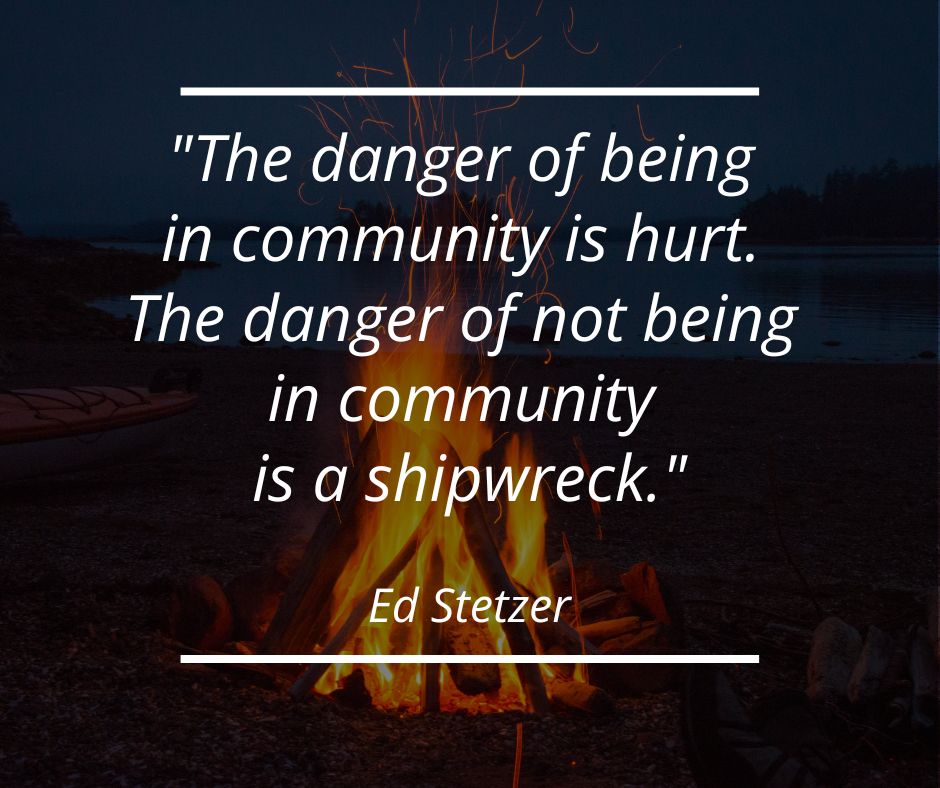Stronger Together: Pursuing Your True North With Othersਨਮੂਨਾ


How can we create a community that walks together, grows together, and serves together like Jesus and the apostles modeled? As we conclude this plan, I would like to offer three practical strategies from Jesus' example.
1. Focus on what you have in common.
What we share in Christ is far greater than our differences. Jesus' own community of disciples included a remarkable diversity: a tax collector (Matthew) and a zealot (Simon)—essentially a government collaborator and a revolutionary. Before meeting Jesus, these men would have been enemies. Yet in Jesus' community, they became brothers.
I'm reminded of Revelation 7:9, which describes people from every nation, tribe, people and language standing before God's throne. Instead of focusing on our differences, we can focus on the grace we've experienced through Jesus and allow it to transform and unite us as John 17 describes.
2. Be intentional.
Community never happens accidentally. Jesus intentionally sought out his disciples and invested in their relationships. In Luke 6, He spent an entire night in prayer before selecting the twelve apostles from among His larger group of followers.
If community is going to be vital to you, you must be intentional about it. For my friend Josh, whom I mentioned on Day 1, intentionality meant hosting a campfire night each month, where more vulnerable conversations took place and friendships deepened.
For you, this might mean quitting something to make space in your calendar. Every commitment has consequences. What might you need to let go of to prioritize a deeper community?
3. Let other people in.
You can only be loved to the extent you're known. This requires vulnerability. Jesus modeled the way by opening Himself to pain and disappointment with His disciples. Peter would betray Him. Judas would sell Him out. Thomas would doubt Him.
It would have been easier for Jesus to keep people at a distance. The same is true for us. But as Ed Stetzer wisely notes, "The danger of being in community is hurt; the danger of not being in community is a shipwreck."
As I mentioned on day two, my wife's difficult pregnancy transformed my relationships with other men. That process wasn't easy, but it was life-changing. Without the friendships I found, I could have made selfish choices or collapsed under the stress.
Becoming more dependent on God often looks like asking others for help.
Vulnerability can feel scary, but without the deep involvement of others, we won't reach our goal. Charley Scandlyn was spot-on when he wrote, "God uses people to create authentic community. God uses community to create authentic people."
So, before your next storm comes, wouldn't it be wise to build a community to help you weather the storm?
Thanks for letting me encourage you through this plan, and I'd love to keep it going! Click here for complimentary access to the Help with Vulnerability Action Plan, overflowing with Biblical and pra ctical tools to equip you with wisdom and courage.
ਪਵਿੱਤਰ ਸ਼ਾਸਤਰ
About this Plan

Exhausted by shallow church connections while craving real community? Jesus' revolutionary approach to community wasn't an add-on; it was a key part of his ministry strategy. Discover why the Son of God refused to walk alone and how authentic spiritual connections become your navigation system when life goes off the rails. This is not just another plan about relationships - this plan from Scott Savage could save your life!
More
Related Plans

Shepherds at Christmas

And He Shall Be Called: Advent Devotionals, Week 3

7 Keys for Spiritual Warfare

Beyond the Stable: Christ's Mission on Earth

Advent: The Light That Rises in the Darkness

A 5-Day Journey Exploring Moses’ Burning Questions

Love Where You Are

The Strength Approach to Christian Wellness

Christmas: The Things We May Have Missed
